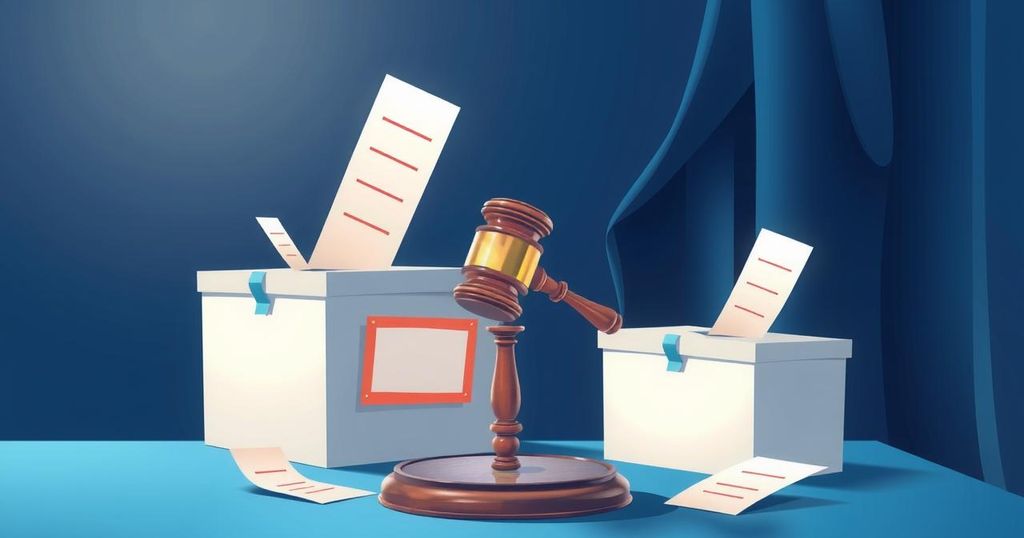Trump’s Executive Order Introduces Major Changes to Voting Process

President Trump signed an executive order to implement substantial changes in U.S. voting systems, including requiring proof of citizenship for voter registration and limiting the counting of absentee ballots. Controversy surrounds this initiative, particularly given the lack of evidence for widespread voter fraud, with legal challenges anticipated.
On Tuesday, President Donald Trump issued an executive order aimed at enacting significant changes to the U.S. election process. The order follows Trump’s unfounded claims of widespread voter fraud, asserting that the current system, under former President Joe Biden’s Justice Department, fails to enforce essential election protections. Notably, the order is expected to face judicial challenges, according to The Wall Street Journal.
The executive order stipulates that proof of U.S. citizenship will be required for individuals to register to vote in federal elections, such as presidential and congressional elections. Acceptable forms of proof include a U.S. passport, a Real ID-compliant driver’s license, a military ID, or any federally or state-issued identification.
In relation to absentee and mail-in ballots, the order specifies that such ballots cannot be counted if received after Election Day. This comes after Trump has made unfounded accusations regarding mail-in ballots causing significant fraud. Currently, certain jurisdictions, including Puerto Rico and 18 states, accept mail ballots if postmarked by Election Day, according to reports from the Associated Press.
The executive order outlines penalties for states that fail to comply, potentially resulting in the loss of federal funding and grants. Additionally, involvement from the Department of Government Efficiency, led by tech billionaire Elon Musk, is mandated to collaborate with the Department of Homeland Security to oversee states’ public voter registration lists and associated maintenance activities.
Contrary to Trump’s assertions, analyses have demonstrated that voter fraud is not a substantial issue in the U.S. Investigations into claims of fraud in key states during the 2020 election reveal minimal incidents, which did not significantly impact the election outcomes. A report from Trump’s own campaign reportedly corroborated this finding, indicating a lack of widespread electoral fraud.
In the backdrop of these developments, it is essential to recognize that Trump has continued to promote claims of voter fraud long after his 2020 election defeat, despite being informed by advisors that such claims lacked support. While initially vocal about these allegations, Trump transitioned to less emphasis following the results of the subsequent elections.
In conclusion, President Donald Trump’s recent executive order introduces decisive changes to U.S. voting processes, including citizenship verification for voter registration and restrictions on mail-in ballots. This order, likely to face legal challenges, emphasizes the administration’s focus on perceived election integrity. However, independent analyses continue to refute claims of widespread voter fraud, revealing a complex interplay between law and political rhetoric. Ultimately, this order reflects ongoing tensions concerning electoral processes in the United States.
Original Source: www.forbes.com







